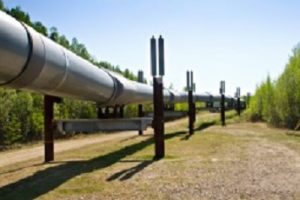A legal challenge to a project to extend an underground gas pipeline 30 miles in Pennsylvania and New Jersey involved the intersection of three federal statutes as well as state authority under the Clean Water Act (CWA).

The project was approved by the Federal Energy Regulatory Commission (FERC), but Delaware Riverkeeper (Riverkeeper) contended that FERC had used its power under the Natural Gas Act (NGA) to approve construction of the pipeline before the project owner, Transcontinental Gas Pipe Line Company (Transco), had obtained a required CWA water quality certification from the state of Pennsylvania. A panel of the U.S. Court of Appeals for the DC Circuit disagreed. The court found that FERC had only provided Transco with a conditional approval that allowed tree felling along the right of way, an activity that did not involve discharges into navigable waters and therefore did not require the state certification.
Riverkeeper also claimed FERC had completed a flawed environmental assessment (EA) for the pipeline extension. The EA is a requirement of the National Environmental Policy Act (NEPA). But upon its own examination, the panel found that FERC’s EA adequately analyzed the project and reached the reasonable conclusion that the project would result in no significant environmental impact provided mitigation measures were taken. The panel also disagreed with other assertions of illegality by Riverkeeper and ultimately rejected the plaintiff’s petition for review.
Background
Under the NGA, a natural gas pipeline company must obtain a Certificate of Public Convenience and Necessity (Certificate Order) from FERC before undertaking the construction or extension of any natural gas facility for the transportation of natural gas in interstate commerce. In September 2013, Transco applied to FERC for a Certificate Order for its Leidy Southeast Project, which would add approximately 30 miles of looping (piping laid parallel to a mainline) to Transco’s existing pipeline in Luzerne and Monroe Counties, Pennsylvania, and parts of New Jersey to meet increasing energy demands.
On August 11, 2014, FERC issued its EA and finding of no significant impact (FONSI). The EA identified CWA section 401 state water quality certifications as required authorizations. The EA also discussed mitigation for the Leidy Project’s impact on Pennsylvania wetlands and concluded that the project’s proposed pipeline gas flow velocities were safe.
Transco had timely applied for a section 401 certification from Pennsylvania’s Department of Environmental Protection on June 10, 2014. However, on December 18, 2014, FERC issued a Certificate Order to Transco, conditionally approving the Leidy Project, before Pennsylvania had acted on Transco’s section 401 request.
Allegations
Riverkeeper contended that FERC violated the CWA because it granted Transco’s request to construct and operate the Leidy Project before the issuance of Pennsylvania’s section 401 water quality certification. Riverkeeper also claimed that FERC violated the NEPA by misidentifying and miscalculating numerous specially protected wetlands.
Conditional Permit and 401 Certification
According to the panel, the major issue was whether FERC had approved an activity that could have resulted in a CWA discharge to navigable waters before Pennsylvania had issued its water quality certification. The panel states:
“Here, the record indicates that the Certificate Order did not authorize any activity that could result in a discharge. Instead, the conditionalCertificate Order was merely a first step for Transco to take in the complex procedure to actually obtaining construction approval. FERC required Transco to obtain the appropriate state agency permits, including a section 401 certification from Pennsylvania, prior to FERC granting Transco permission to proceed with activity that could result in a discharge.
“Because the Certificate Order expressly conditioned FERC’s approval of potential discharge activity on Transco first obtaining the requisite section 401 certification, and was not itself authorization of any potential discharge activity, the issuance of the Certificate Order before Pennsylvania’s issuance of its section 401 certificate did not violate 401 of the CWA.”
Environmental Assessment
Riverkeeper contended that in its EA, FERC misclassified wetlands near the proposed pipeline project. The plaintiff’s argument had two parts. First, Riverkeeper asserted FERC had misclassified the wetlands using Pennsylvania’s state classification system. Second, Riverkeeper claimed that FERC was guilty of additional wetlands misclassification using the Cowardin system, which has been the de facto standard used by the federal government for mapping U.S. wetlands and deepwater habitats since 1976.
The panel dismissed the first contention, stating, “Nowhere in the EA does FERC even discuss, much less rely on, the application of Pennsylvania’s system.”
Regarding its second contention, Riverkeeper claimed that FERC “failed to accurately account for the expected ground disturbance impacts that will result from the [Leidy] Project’s construction and operational activity because it misidentified the cover types of fourteen wetlands—totaling approximately 3.8 acres that would be impacted by operation or construction—pursuant to the Cowardin system.”
The court responded that Riverkeeper did not explain how the supposed miscalculation inexorably leads to the conclusion that FERC failed to accurately account for the Leidy Project’s impact on the environment.
“What we see from the record in this case is that FERC responsibly addressed Riverkeeper’s misclassification argument in its Certificate Order,” said the panel. “The [FERC] stated that it relied on its classification only to ‘disclose and evaluate potential impacts on wetlands and to serve as a starting point for the development of protective mitigation.’ FERC thus disclosed its methodology and purpose as a starting point for mitigation, which would subsequently involve the Corps and state agencies to further oversee mitigation. It seems clear here that FERC took the requisite ‘hard look’ [a NEPA requirement] at the impact of the Leidy Project on the environment.”
Finally, the court did not accept Riverkeeper’s argument that FERC and Transco did not adequately respond to Riverkeeper’s request about gas flow velocities in the pipeline. Other Riverkeeper assertions—that EA’s data on gas flow velocity was inadequate and that the velocities are unsafe—were similarly dismissed by the panel.
The panel’s opinion in Delaware Riverkeeper v. FERC is here.
